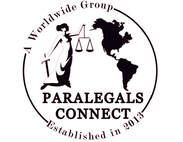The Ontario Paralegal Structure
7/3/2020
By: Jeffrey Smith The Law Society of Ontario began licensing paralegals as independent representatives in 2007. This was not a major shift. In fact, paralegals had been independent advocates for people well before the licensing came about. Formerly, paralegals were known as “court agents.” In order to become licensed an applicant must have a college diploma and must also pass a full day examination and a comprehensive background check. Paralegals in Ontario are licensed by the same body that licenses lawyers. This has not been without significant controversy. Paralegals are regulated by their competition, which by its very nature restricts our practice to highly defined areas and often areas which aren’t appealing to lawyers to begin with. We are bound by the exact same rules and the exact same standards as lawyers when practicing within our scope. Our role is expected to further develop with paralegals being able to act as notaries and take on family law matters. Although not confirmed, I believe the next step would also be for paralegals to accept and take on “legal aid matters.” Legal aid, for those who aren’t familiar with it, is a government funded service that pays for lawyers to represent clients in certain matters. There have been issues with paralegals practicing out of scope, non-payment of fees, and a few non-competence issues from paralegals who have been grandfathered into the practice. Most of the convictions against paralegals by the Law Society Tribunal seem to be for violating rules that restrict our practice or our advertising, but not very many wherein competence is the heart of the issue. Paralegals are currently licensed to appear at any board, agency, or tribunal in Ontario. Under the Immigration and Refugee Protection Act, we can represent before the federal tribunal, although the Law Society of Ontario is of the position we can’t represent fully at the Immigration and Refugee Board. This issue will be resolved through the courts at some later juncture and is much more complicated than I described in the previous sentence. Paralegals can also appear at any matter under the Provincial Offences Act¸ and for a whole host of Criminal Code offences, when the prosecution is proceeding summarily (almost like a misdemeanor), and on cases that are proceeding in the Small Claims Court, which hears matters up to $35,000.00. The rule of thumb is if a matter is being heard at the Ontario Court of Justice, generally speaking, we can appear there. Our representation is full representation and includes selecting the forms, drafting the pleadings, and running the trials. A full list of approved criminal offences, can be found at: https://lso.ca/about-lso/legislation-rules/permitted-criminal-code-summary-conviction-offence. Paralegals who don’t practice fully independently will work under lawyers as a law clerk. This is more analogous to the American version of a paralegal. A paralegal working under a lawyer can take on a murder case, a family law matter, or any other matter, up to, but not including appearing at court - except with some exceptions when appearing as an agent for their lawyer. In many cases, paralegals will work both as a paralegal and as a law clerk for a law office. So, for example, if a client comes in with a small claims matter, the law firm and the client can experience considerable savings by having the paralegal take care of the matter and run the trial. Many colleges offer a double diploma option enabling students earn a diploma as a law clerk and as a paralegal. We provide a tremendous access to justice for our clients. We can often put in twice the amount of work than a lawyer to represent and defend someone. Our criminal scope is mostly poverty related crimes. Our Provincial Offences Act is comprised mostly traffic tickets, and our civil litigation is small claims. We work with the most marginalized members of our community. It is my hope that America will adopt a similar model so that people aren’t “priced out” from the justice system. It is also my hope that in Ontario and throughout Canada we will garner more respect and trust from the judiciary and be permitted in a wider array of matters.  About the Author: Jeffrey Smith is a licensed paralegal, licensed by the Law Society of Ontario, having graduated in 2019. Jeffrey has a background in police foundations, private investigations, regulatory complains, several certifications in forensics and investigations, as well as some psychology training and certifications. Jeffrey currently owns and operates a full-service paralegal office, within the province of Ontario, as JD Smith’s Legal Services, the website is jdsmith.legal.
1 Comment
|
If you are interested in submitting a blog...Please contact Crystal Cornett at [email protected] Archives
August 2023
Categories |
Telephone832-696-9315
|
|
